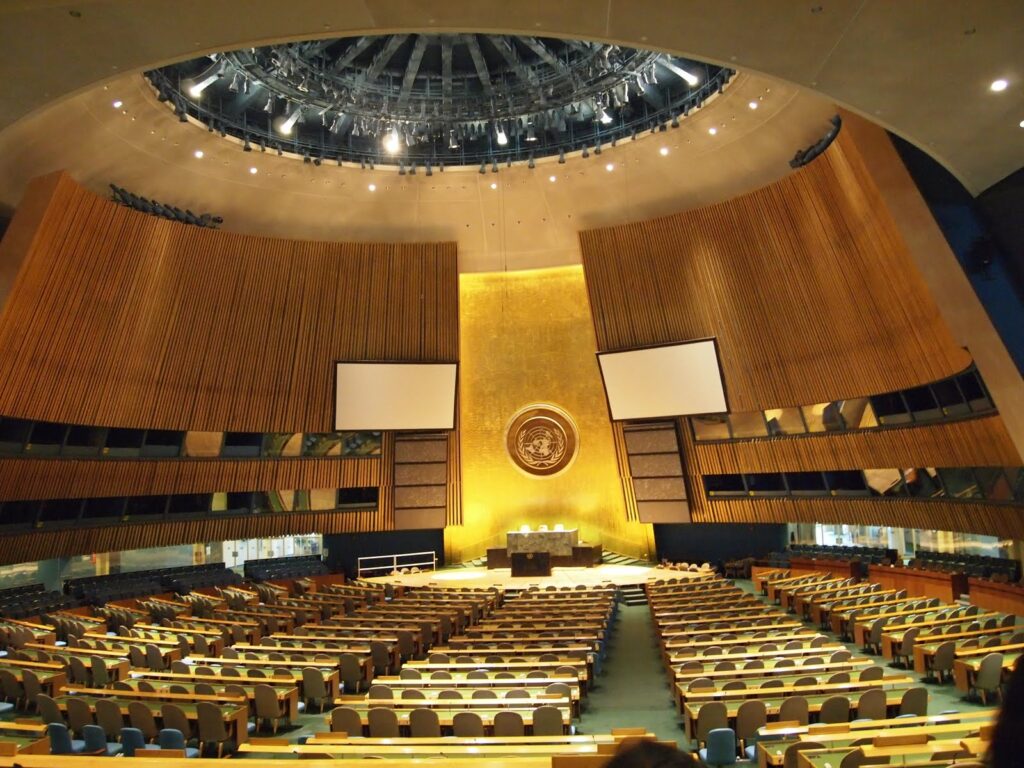WASHINGTON, D.C 15 December 2022 – The United Nations General Assembly (UNGA) voted in favour of the Third Committee’s resolutions – with new language to protect individuals targeted under anti-apostasy anti-blasphemy laws.
The General Assembly is the UN’s most representative body, comprising all 193 Member States. On Thursday, 133 (over two thirds) of the member states voted in favour of the extrajudicial, summary, or arbitrary executions resolution and 125 countries voted in favour of the moratorium on the death penalty resolution, including the new language advocated for by Jubilee Campaign together with members of the IRF Summit Global Campaign to Repeal the Death Penalty for Apostasy and Blasphemy and over 90 organisations and key individuals.
Of the at least 12 states which maintain the death penalty for apostasy and/or blasphemy, Brunei, Libya, Qatar, Saudi Arabia, Pakistan, Libya, the Maldives, Iran and Yemen voted against the resolution on the moratorium on the death penalty. In addition, Nigeria, Qatar, Brunei, Iran, Libya, Mali, Mauritania, Nigeria, Yemen, Pakistan and Qatar were among the 11/44 countries who abstained from voting on the summary and arbitrary executions resolution. These countries therefore, should be monitored since they do not provide or support protection for individuals threatened under summary executions.
The language which was initially adopted by the Third Committee in November has now become an official part of the documentation of the United Nations. This means that states will need to implement these features into their work.
The new language in the extrajudicial, summary or arbitrary executions resolution, included in the preamble:
“voicing concern about acts that can amount to extrajudicial, summary or arbitrary executions committed against persons exercising their rights to peaceful assembly, freedom of expression and freedom of religion or belief and against human rights defenders in all regions of the world.” [our emphasis].
The new language in the moratorium on the death penalty resolution, included in the operative paragraph:
[Ensure that the death penalty is] “not applied on the basis of discriminatory laws, including laws which target individuals for exercising their human rights.” [our emphasis].
The coalition of individuals and organisations signed a joint Charter, released on the 22 August 2022 for the International Day Commemorating the Victims of Acts of Violence Based on Religion or Belief, to ensure the death penalty is never applied for apostasy and blasphemy and calling on UN member states to embed language into the UNGA resolutions. Signatories included apostasy law survivor Cheikh Mkhaitir from Mauritania; former UN Special Rapporteur on freedom of religion or belief Dr. Ahmed Shaheed; Dr. Muhammad Khalid Masud, current Ad Hoc Member of the Shariat Appellate Bench, Supreme Court of Pakistan; Former EU Special Envoy on International Religious Freedom Ján Figel; Joel Voordewind, a former Dutch parliamentarian; Baroness Caroline Cox, Independent Member of the United Kingdom House of Lords; and Dr. Ewelina Ochab, Human Rights Advocate, among others.

